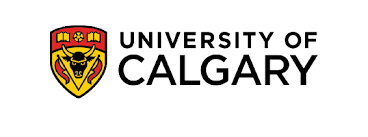Renowned Scholar Explores Intersectionality, Discrimination, and Backlash Against ‘Wokeism’ at University of Calgary Event
“Your right to be here violates my right to exclude you.”
These words, spoken by famed scholar Kimberlé Crenshaw, represent a challenge to equity, diversity and inclusion that is playing out in the United States and more broadly.
Crenshaw, a professor of law at Columbia University and the University of California, Los Angeles, who coined the term “intersectionality” to describe the way people’s social identities overlap and shape systemic barriers that impact opportunities, spoke at the University of Calgary on March 18.
The event, titled Intersectionality: Re-imagining Equity, Diversity, and Inclusion (EDI) in the Academy, was part of UCalgary’s Courageous Conversations Speaker Series and was hosted by the Cumming School of Medicine’s O’Brien Institute for Public Health and Alberta Children’s Hospital Research Institute (ACHRI), the UCalgary’s One Child Every Child initiative, the Office of Equity, Diversity, and Inclusion, and the Office of the Vice President (Research).
Intersectionality serves as a framework for describing the interconnectedness of various identities — such as disability, race, gender and class — and their relationship to systems of discrimination and oppression, particularly affecting marginalized groups.
As a leading scholar in civil rights, critical race theory, and Black feminist legal theory, Crenshaw has significantly influenced public debate on human rights issues ranging from violence against women and girls to structural racial inequality. Her groundbreaking contributions, most notably on intersectionality, have had global impact, including informing the drafting of the equality clause in South Africa’s constitution.
A backlash against “wokeism” has expanded to ensnarl equity, diversity and inclusion programs in public universities in some U.S. states, including efforts to prohibit such programs, defund libraries, as well as limit research topics and classroom discussions of concepts like privilege or systemic racism.
“Whether the attack is on EDI, the attack is on ‘woke,’ the attack is on intersectionality, the attack is on critical race theory — it’s all an effort to say ‘things were better when we weren’t talking about this stuff. Things were better when you weren’t here. Things were better when we didn’t have to account for how our practices and expectations are largely grounded in systems that were created when many of us weren’t part of it,’” said Crenshaw during the event.
Institutions must not be swayed by the politically motivated backlash, said Crenshaw, and should instead continue to work to improve their limited understanding of structural racism, the history that shapes it, and how it is playing out today.
Crenshaw likened these issues in our institutions to asbestos and argued that “if we don’t have the ability to see it, to analyze it, to be able to find it and remove it, it’s going to continue to be toxic.”
Crenshaw urged supporters of EDI to continuously advocate for these principles within their institutions.
“We need to have a more collective front, we need to have deeper engagement with the ideas, not just during times like Black History Month, but all year,” she said.
Advancing equity, diversity and inclusion in the academy
The Courageous Conversation discussion explored the impact of intersectionality over the past 35 years and its significance for advancing equity, diversity, inclusion and accessibility in the academy.
“It was a thoughtful transdisciplinary conversation, which made important contributions to knowledge, understanding and public policy that are helpful for those working to advance EDI, accessibility, pluralism and cognitive justice,” says Dr. Malinda S. Smith, UCalgary’s vice-provost and associate vice-president research (EDI), who moderated the March 18 event.
“The University of Calgary is committed to achieving institutional excellence in everything we do, and this holds true for equity, diversity, inclusion and accessibility. It was an honour to be in dialogue with Professor Crenshaw — a world-renowned legal scholar whose pioneering contributions to intersectionality, anti-racism and social justice undoubtedly will aid us as we continue towards a fairer, more just, and more inclusive academic community and wider society,” she says.
The O’Brien Institute and ACHRI share a commitment to advancing EDI, not only in their organizational frameworks, but also in research endeavours, says Dr. Bukola Salami, PhD, who played a pivotal role in bringing Crenshaw to Calgary. Both institutes prioritize addressing health disparities and societal inequities, she says.
Examples include ACHRI’s One Child Every Child initiative, for which Salami oversees the EDI Accelerator, and the recently launched Health Equity HUB at the O’Brien Institute.
“In welcoming Professor Kimberlé Crenshaw to the university, we affirm our dedication to fostering inclusive spaces where critical dialogues on equity, diversity and inclusion thrive. By harnessing the power of intersectionality, we aim to unravel the complex web of health disparities and societal inequities, propelling transformative change in academia and the communities in which we serve,” says Salami.
The discussion was part of a series of events Crenshaw participated in while in Calgary, including the City of Calgary Anti-Racism Program’s inaugural Racial Justice Conference from March 18 to 19.
“Professor Crenshaw’s visit was timely as The City is on a journey to become an anti-racist organization,” says Dr. Linda Kongnetiman, PhD, managing lead of the Anti-Racism Program at The City of Calgary.
“We are committed to ensuring that all Calgarians can live, play and work in this city. To make this happen we need safe spaces to have candid conversations about dismantling systemic racism. The opportunity to host Professor Crenshaw supports us in our goal for Calgary to become a racially just city,” she says.

